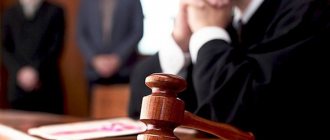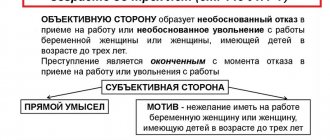A legal society guarantees that every person from birth has certain rights and freedoms. Moreover, regardless of age: even children have civil rights, which is guaranteed to them by the Constitution. As practice shows, today one can often encounter non-compliance with constitutional rights, including in relation to minor citizens. The reasons are different and one of them is ignorance of the rights of small citizens and the freedoms that they may have.
Children is our future.
Children's rights laws
The main guarantees of rights are the following documents: the Constitution of the country, the Family Code of the Russian Federation and the Convention on the Rights of Children . The last document was approved at one of the meetings of the UN Assembly. In addition, the protection of the rights of minor children is guaranteed by various federal laws, which stipulate the following points:
- Healthcare.
- Basic guarantees.
- Education.
- Guarantees of social support for children left without parental care.
- About equality.
- On social protection in the Russian Federation for disabled children, etc. (disabled people can also apply for a visa and travel).
Basic laws on children's rights in the Russian Federation.
Convention on the Rights of Children
The legal regulation of all emerging issues regarding the protection of the rights of the child is based on the Convention. This document is the fundamental one among all the listed laws. In other words, the Convention serves as a guarantee of the rights of the child in the Russian Federation. But that's not all: there are many other points that need to be mentioned.
The Declaration of the Rights of the Child contains many more points regarding the protection of children and their lives. It mentions the protection of orphanhood, the rights of disabled children, protection from sexual violence and cruel treatment. The Declaration of the Rights of the Child also contains the following guarantees:
- Protection of living space.
- The secrecy of telephone conversations and correspondence.
- Non-disclosure of personal information, in particular about adoption, personal life, etc.
- Opportunity to receive help in case of family deprivation. In such cases, the rights of minor children are protected by the state.
- Protection from being forced to work in hazardous work.
What does a child have the right to in Russia?
How does the state protect children?
Respect for the rights of every minor is the responsibility of government agencies. In particular, this is the task of institutions responsible for guardianship and trusteeship. If serious conflict situations arise, the prosecutor's office and the court may intervene.
To do this, the child himself (or his parents) can fill out a special application form and send it to the prosecutor's office. Next, the case will go to court, which will regulate the rights of the child.
Protection of children's rights
Until they receive a passport - they are 14 years old, minors cannot independently defend and defend their interests. This responsibility rests with parents and guardians. They, defending the minor, go to court. If necessary, representatives of state authorities - guardianship authorities - are obliged to protect him from his own parents.
Documents on children's rights
The issue of protecting the legal interests of minors was first raised in 1924. Then the Declaration of the Rights of the Child was developed and adopted. On its basis, an International Convention was subsequently created and signed.
Public organizations for the protection of children's rights
The main provisions on the rights of the child are enshrined in the Convention. In order for all legal aspects of child protection prescribed in it to be observed, each country that has signed it monitors the implementation of all points. The main representative and protector of minors at the state level is the Commissioner for the Protection of Children's Rights or Ombudsman. There are also organizations dedicated to protecting mothers raising children alone, as well as teenagers who find themselves in difficult life situations.
Until what age is a child considered such?
A child is considered a person who has not reached the age of majority (eighteen years of age). But there are also exceptions. The first case is if a 16-year-old teenager, with the consent of his parents (guardian, adoptive parent), gets a job, signs a contract or employment agreement, and engages in volunteering.
As an option, a 16-year-old teenager begins to engage in entrepreneurial activity, then he can already be declared legally competent. Another case is marriage before adulthood. In this case, the teenager is considered legally competent from the day the marriage was concluded.
For information about what emancipation of minors is, see the following video.
Minors and minors
By law, children were divided into two categories - minors and minors. Depending on the category of children in the Russian Federation, whether they are minors or minors, children and their parents are provided for by law with various rights and freedoms. A child is considered a minor from birth to the age of fourteen.
At the age of 14, a teenager becomes a minor. The rights and freedoms of each child depend on which category he belongs to. So, until he turns 14 years old, all issues are resolved by his parents (guardians, adoptive parents).
At the age of 14, a person already has the right to independently make decisions about small transactions, and upon reaching adulthood, he acquires the rights of an adult, becomes fully capable and has all the civil rights and responsibilities of other citizens of the state.
According to the law of the Russian Federation, 14 years is the period for obtaining a passport.
The moment of onset of criminal and administrative liability
Criminal liability arises from the age of 16. From this moment on, the teenager is responsible for the criminal offenses committed.
From the age of 14, a person who has committed:
- killing a person;
- caused severe or moderate harm to health;
- violent sexual acts;
- holding a person against his will;
- assault with intent to commit robbery;
- robbery;
- theft of movable property;
- intentional damage to any property;
- committing terrorism;
- damage to public property;
- theft of any type of weapon.
Criminal liability arises not on the child’s birthday itself, but from 00 hours 00 minutes following this day.
Administrative responsibility arises when the child reaches 16 years of age.
From the age of fourteen, responsibility for dangerous actions arises.
From 14 to 16 years of age, liability arises for violating traffic rules.
The following educational measures can be applied to children:
- confess publicly and apologize;
- issue a written warning;
- under the age of 16, impose an obligation to compensate for damage;
- placed under strict parental supervision;
- refer to a medical institution;
- from 11 to 14 years old, send to a special school, and from 14 to 18 years old, to a specialized school.
What rights does current legislation guarantee for a child?
The Universal Declaration of Human Rights issued by the UN regarding the rights of the child contained the following declaration: due to the fact that children are still physically and mentally immature, they must be guaranteed legal protection.
This will help ensure protection and care from the moment of conception until the age of 18. To ensure that children can live a happy life, several important principles have been established to ensure a happy childhood.
Principles of the Declaration
The most important of them states that every child has all fundamental rights that should be recognized by both other children and adults. Discrimination on grounds such as religion, language, gender, skin color, race, political or other opinions, national or social origin, property status or any other circumstances that affect both children and members of their family is prohibited.
Principles of the Declaration of the Rights of the Child.
Every citizen of the Russian Federation from birth has the right to receive a last name, first name and patronymic. They can be given by both parents and adoptive parents. If a father and mother have different surnames, which one their son or daughter will bear is decided by mutual agreement. If the parents could not agree, the child’s first and last name is given by the guardianship and trusteeship authority.
If parents do not like the name chosen by themselves or a government organization, they have the right to change the surname or first name, but until their child turns 10 years old. If the daughter or son is over 10 years of age, then, according to legal protection, it is possible to change the child’s last name or first name only if he agrees with this decision.
Social protection
Under the current law, a minor citizen is provided with social protection. He is also provided with favorable conditions so that he has the opportunity to develop spiritually, morally, mentally and physically, his freedom, dignity, social rights and interests are not oppressed by other people: the main goal of all legislative acts of the Russian Federation regarding children is to best ensure the interests of each child until 18 years.
Expenditures on the social sphere of the Russian Federation.
Family law
Family law says: in order for a child to develop fully and harmoniously, he needs love and understanding, which only a family can give - natural or adoptive parents, guardians.
Material and moral security, an atmosphere of love in the family circle, parental responsibility - all this ensures a happy childhood for every child. The most important right of minor children is to always remain with their mother and only in exceptional cases is separation from her allowed. Society and public authorities are obliged to take care of the rights of orphans who have no family and no means of subsistence.
If a child lives in a large family, the ombudsman for children’s rights in the constituent entities of the Russian Federation must ensure that this family is provided with benefits from the state so that they can support the children.
Just about the main thing. Family law in the Russian Federation. We recommend watching it.
What to do if parents drink?
As already noted, it is not the state, but the parents of the child who should protect the rights and interests of the child. However, there are families in the country where children need to be protected from their own mothers and fathers who regularly show cruelty and violence towards their offspring.
In this case, experts recommend contacting social and pedagogical centers. In such centers, children who cannot fend for themselves are protected. Thus, if serious problems occur in the child’s family, for example, parents often drink and are alcoholics, the child can calmly contact the center and receive the necessary help.
A child may seek help if his parents, for example, drink regularly
Important ! Also, such centers are ready to help single mothers who do not want to lose parental rights, but are not able to cope with the problem on their own.
The time a child spends in the center ranges from several days to six months. Such a period is aimed at ensuring that the parent has time to admit his mistake and take the path of correction. If this does not happen, then after six months the child’s fate falls into the hands of the guardianship and trusteeship authorities, where a decision is made to return to the family or find new adoptive parents.
Important ! It is worth noting that the child in the center will also be under attention. Employees of such organizations will continue psychological work with the child, and will also help him with his studies and communication.
In special centers they work with children, help them develop, find a common language with their peers
Education
Education is the most important condition on which not only the career, but also the well-being of every citizen depends. Therefore, the Civil Code of the Russian Federation states that every child can study at school for free. Moreover, the state legislatively regulates the education system so that it helps every student:
- develop culturally;
- develop personal judgment;
- foster moral responsibility.
All this will help everyone, over time, benefit the society that gave him all these opportunities.
Responsibility for the quality of education lies not only with educational institutions, but also with parents: the child must be provided with all the conditions for learning, as well as games, the purpose of which is to improve education.
Realization of the child's right to education.
The state also defends the right of people with disabilities to education: for this purpose, various educational institutions of various types have been opened.
Child's rights to education
The types of rights associated with education are as follows. The child can:
- Take an accelerated course.
- Use information and library resources.
- Get additional education.
- Study in your native language or choose any other language of instruction provided by the educational system.
- Move to another educational institution if the educational institution ceases its activities. But at the same time, according to the rights of the child in the Russian Federation, he must agree on his decision with his parents.
- Defend and defend your decision to change professional training. If he does not like his future profession, it is unacceptable to violate the child’s personal rights in this matter.
- Realize your desire to obtain higher education.
Expenses on education in the Russian Federation.
What to do if there are problems at school?
At school, children do not always manage to find friends in the team and establish relationships with teachers. There are often cases of conflicts arising from any of the existing parties, and in this case, experts recommend that the student contact a social teacher who works at the same school.
If you don’t want to do this, then there is another way out - you can contact the Commission on Minors’ Affairs.
Important ! Mostly, children or teenagers who have problems at school or other conflict situations turn to such an organization.
You can contact a social worker if problems arise at school.
Medical support
As for health protection, the rights of the child in the Constitution of the Russian Federation also contain clauses regarding health protection. They state that every minor has all rights and freedoms in the field of medical care. He can:
- Get treatment and observation at a dispensary.
- Take advantage of preferential conditions for food and medical care.
- Receive information about his/her health status in a form that, according to the protection of children's rights, is accessible to his/her age.
- Study and work in conditions that exclude the adverse effects of various factors on his health.
What is very important, the protection of children’s rights in the Russian Federation allows minors who have reached the age of 15 to voluntarily agree or refuse medical intervention in writing.
Healthcare costs in the Russian Federation.
What does the expert think?
A child is always considered the weaker party when it comes to civil matters. This is explained by the fact that he is not able to fully understand the consequences of the decisions made, as well as understand the rights that he has. Basically, most of the rights and responsibilities of a child are assigned to the parents or his guardians, but with age he has rights that he can exercise independently, and he should be informed about this in advance.
For example, not every child knows that from 6 to 14 years old he can make small purchases, and at 10 years old he can express his own opinion in court when his parents divorce or register guardianship. The state must protect the rights of its young citizens, and therefore many Codes and other legislative documents contain articles devoted to the rights and responsibilities of children. As for the Criminal Code, it also provides penalties for violations of these rights.
Another confirmation of the importance of respecting children’s rights is the presence of a commission on juvenile affairs. With their help, it is possible to change the lives of adolescents for the better, protecting them from conflicts or actions unfavorable to society.
Property rights of children
In the law on the fundamental rights of the child, one of the important points is the right of every minor to their own property. This applies to children’s housing rights and property purchased with personal funds, donated or inherited. According to the Civil Code, each child can dispose of his property at his own discretion.
Responsibilities of parents to support children
As for maintenance, the documents on children's rights say: parents must support their children until they receive an education. If the mother (father) receives child support, then, as indicated in the Federal Law, she (he) can spend the funds received on the maintenance of the child.
The amount of alimony is regulated by the court, but the amount cannot exceed 25% of the earnings of the party paying the elements. In addition, the party paying alimony may deposit the amount into a bank account opened in the name of the minor son or daughter. To see what types of alimony are provided for by law, see the following video. Upon reaching 18 years of age, according to the guarantee of children's rights in the Russian Federation, the owner can use the funds for education or for other purposes.
Responsibilities of minor children
Responsibilities of minor children:
- obey parents or guardians;
- comply with accepted standards of behavior;
- Upon reaching a certain age, each child has additional responsibilities, legal responsibilities and opportunities.
Rights of disabled children
What can the most vulnerable category of children count on? The Constitution of the Russian Federation guarantees equal rights to all citizens without exception.
Right to study
According to the Federal Law, children with disabilities have a number of advantages over their peers:
- Priority admission to kindergartens and free attendance;
- Education in specially created correctional classes, if the state of health does not allow being in general education classes, as well as at home;
- Free meals at school;
- Gentle mode of passing exams.
Features of inclusive education.
The right to treatment, rehabilitation and socialization
Every disabled child has the right to treatment, rehabilitation and social adaptation in society. So what exactly can families raising a child with disabilities expect?
- Treatment in medical institutions and rehabilitation;
- Everything you need for a comfortable life for a minor (wheelchairs, orthopedic shoes, literature for visually impaired children, etc.);
- A ticket to a sanatorium, and the state provides free round-trip travel for both the child and his accompanying person.
- Free travel on public transport.
- Monthly cash benefits in accordance with the disability group and region.
Children with disabilities need comprehensive care.











